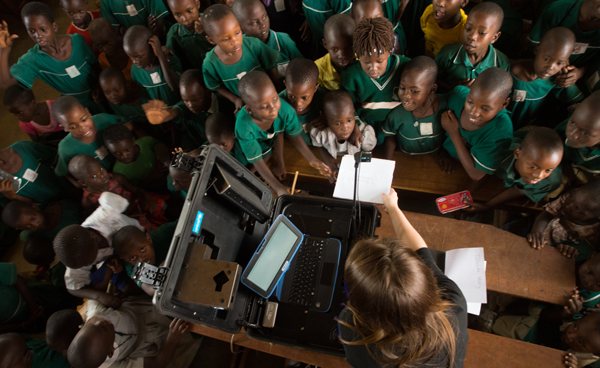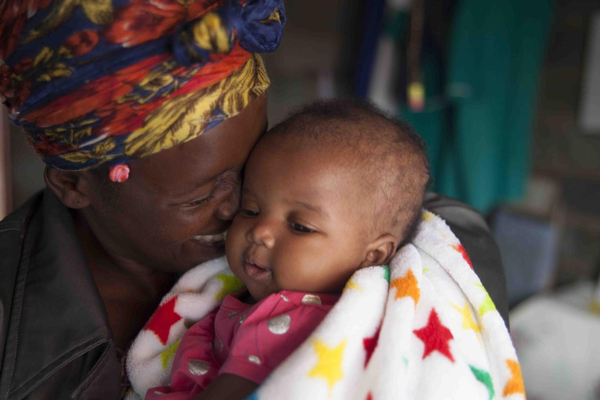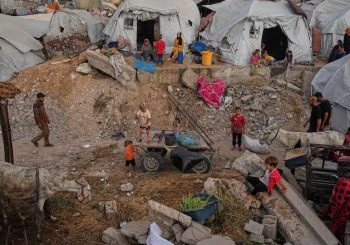With the ongoing progress of artificial intelligence and the unprecedented developments of day-to-day technology, the world is at risk of big challenges such as job loss due to automation or facing climate change.
UNICEF prepares for world biggest challenges through joining technology giants seeking innovation solutions to humanitarian challenges to benefit children.
Co-founder of UNICEF Innovation Christopher Fabian explores the innovation and startup scene in Egypt in a visit where he sheds lights on the initiatives of UNICEF innovation.
“One shall be interested in the social rather than the business,” says Fabian in an opening statement in a roundtable discussion highlighting the context of impact through innovation in Egypt.
Fabian visited the The American University in Cairo (AUC) on 23 May and held a roundtable discussion with a glossary of Venture Capitals (VC’s), entrepreneurs, investors, and members of the private sector to talk about innovation in Egypt.
Aiming at exploring the startup scene in Egypt, UNICEF Innovation aims to cluster companies that work in similar places together in addition to changing the way we affect children’s lives through technology. Also, UNICEF has the privilege of figuring out entrepreneur friendly policy with governments.
“It is not only an organisation that works for children, but it does that through your business lens,” says Fabian.
UNICEF Ventures invests in early stage solutions that show great potential to positively impact children in the one-to-two-year future. This investment comes from the recently launched UNICEF Innovation Fund, which is a pooled funding vehicle that invests in open source technology solutions coming from startups based in UNICEF’s program countries.
The value of UNICEF is bridging the corporate to human needs. Through the funds, UNICEF can bridge the startup to government area.
“We can sit with governments and figure our entrepreneur friendly policy,” adds Fabian. One of the values we bring to these companies is the ability to be an interlocutor between the structural systems and the ability to innovate and make new ideas happen.
Fabian spoke to Egyptian Streets about the value of carrying long lasting impact through sustainable projects and businesses that serve human needs.
“I think there is a great difference between empathy and understanding. Charity is about empathy and that does not last for very long. Understanding is much more difficult. It is like we are all connected and I have to solve a problem that affects me,” says Fabian.
Drawing a distinction between doing charity and actually starting a business to solve an issue drastically affects the lifespan of the projects launched.
“Charity itself doesn’t last long enough and it is not personal enough to have the type of change that I want to see in the world. Understanding how connected we all are, and understanding that making a company that both does good and also does good business is very difficult. That type of thinking whereas I am making a solution for my own problem drives better results at the end,” adds Fabian.
Innovation Fund Manager Sunita Grote says that in UNICEF Innovation Fund they look to provide early stage seed funding to support new ideas.
“We look for those who develop solutions in frontier technology areas. Today, we make five investments in this region and to cluster companies who work in similar places together,” says Grote.
The purpose of the UNICEF innovation fund is to invest in open source technologies for children. “We are developing a 6-week online program on how to create an an open source business that can create profit,” says Grote.
Grote adds “we are working now to develop a six-week online curriculum for how to be open source and make money.”
By using emerging technology and developing it in ways a private sector startup would, UNICEF would be able to carry better change in difficult parts of the world.
“I don’t think there is any such thing as local anymore. I think a lot of things have changed. I think that local is a very different question now. I think the idea of ‘think globally act locally’ goes back to the idea of solving your own problems, but I don’t think that it is about physical location anymore,” believes Fabian.
Fabian concludes by saying that they need assets that represent a potential to carry on the goals as when creating a business model that benefits the society, profit would follow. The dichotomy of profitability and social impact shall never be separable as businesses are supposed to meet societal needs.







Comments (0)